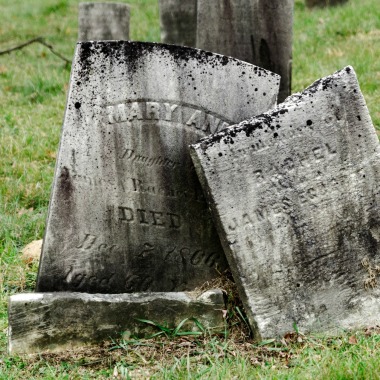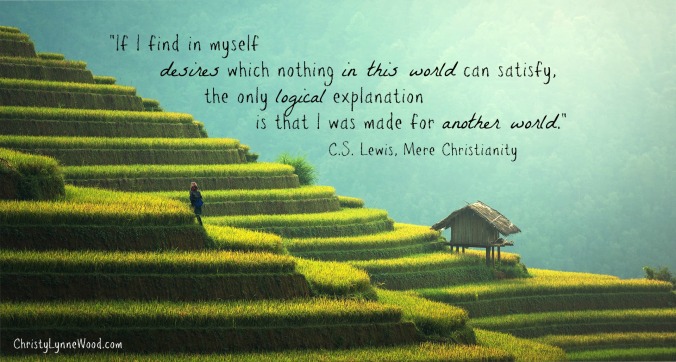I’m sorry it’s been so long since my last post in this series, The Stages of Spiritual Growth. To be honest, I have been thinking very hard about this subject and trying to come up with something meaningful.
You see, the thing is that I personally have no experience of this Stage of Spiritual Growth, if indeed it exists, and thus I would be writing from what is essentially a position of ignorance. But there are three things. First of all, just so long as my readers understand that I am writing this piece from that standpoint, and that I don’t really know much about this subject, then I’m not deceiving anyone – and I will write down my thoughts on it as I see them at the moment. Secondly, I am making the assumption that Stage 6 exists even though I personally believe that in some ways it’s just a natural progression to increased maturity in Stage 5. But then, as I said, I really don’t know. I must be honest and say that I have read Fowler’s chapter on this Stage and I can’t make head nor tail of it. Nothing has ‘clicked’ with me at all; it is all completely outside my experience. And finally, I can always draw on others’ perspectives and examples, which I do later in this piece.
So let’s begin our exploration of this Stage by looking at the summaries for Stage 6 (Fowler) and Stage IV (Peck) in that familiar tabular form (you can click on it to enlarge it):

Note that Peck combines Fowler’s Stages 5 and 6 into his single Stage IV. I think this is fair enough as this differentiation of Stage 6 is somewhat of a grey area, as I have already described, and in any case this whole thing about the ‘Stages of Spiritual Growth’ is very much a generalisation. Most people, being on a spiritual journey, are not necessarily ‘in’ a Stage at all; it is mainly useful as a tool to see how the structure of people’s faith changes as they too change personally. Or not; not everyone matures in this way – some stay where thay are and are perfectly happy, while others sometimes ‘jump’ straight into one ‘Stage’ or another without having any previous background in matters of faith. This is especially common with people who jump straight in at Stage 5, without going through Stages 3 and/or 4 first. I know quite a few people like this, in fact.
Let’s look at Fowler’s formal definition of Stage 6:
“Stage 6 is exceedingly rare. The persons best described by it have generated faith compositions in which their felt sense of an ultimate environment is inclusive of all being. They have become incarnators and actualizers of the spirit of an inclusive and fulfilled human community. They are “contagious” in the sense that they create zones of liberation from the social, political, economic and ideological shackles we place and endure on human futurity. Living with felt participation in a power that unifies and transforms the world, Universalizers are often experienced as subversive of the structures (including religious structures) by which we sustain our individual and corporate survival, security and significance. Many persons in this stage die at the hands of those whom they hope to change. Universalizers are often more honored and revered after death than during their lives. The rare persons who may be described by this stage have a special grace that makes them seem more lucid, more simple, and yet somehow more fully human than the rest of us. Their community is universal in extent. Particularities are cherished because they are vessels of the universal, and thereby valuable apart from any utilitarian considerations. Life is both loved and held to loosely. Such persons are ready for fellowship with persons at any of the other stages and from any other faith tradition.”
Where Fowler refers to part of Stage 5 as, ‘…without being stuck in a spiritual box’, I think that part of that is an increased understanding of the perceptions of those who have a differing point of view on the spiritual life. Which, when you think about it, is virtually everyone, since I don’t really think that anyone believes exactly the same things as anyone else; we all believe slightly differently. Even for people as close as Fiona and I were, we still believed slightly different things. In fact, one of Fiona’s things that she didn’t agree with me on was this very subject – the Stages of Spiritual Growth 🙂 Anyway, I feel that this illustrates my earlier point that Stage 6 is perhaps more of a natural progression, a deepening if you like, of attitudes and modes of belief and thinking from Stage 5. In this example, then, someone in Stage 5, realising that their views have changed, become more fluid, or if they have undergone a major deconstruction of their previous belief systems, then they might also realise that they don’t have everything right, and in fact are unlikely ever to do so. This makes it far more likely that they will have sympathy with those of other viewpoints – or even different faiths – simply because they realise that they didn’t have it all correct when previously they were so certain that they did, so what’s to say the other guy is wrong and we’re right? Of course this takes a bit of clear thinking and a lot of humility – as we shall see – but the Spirit does ‘soften’ people to the point where they can make this transition.
It’s especially important to remember that God moves us each through the Stages, if indeed He does so move us – as we have already seen, not everyone necessarily moves through Stages’ like we are describing here – all in His own good time. When and if God is ready to move us further into maturity, He will see that the right circumstances come into being at the right time and so on. In fact, the moving on is a gradual process anyway; as we spend each day walking in the Spirit, we will naturally mature. The transformation of the believer ‘…from one degree of glory to another’ (2Cor 3:18) strongly suggests that it was St. Paul’s experience that transformation occurs in degrees, gradually, one piece at a time. And we can expect this. So there’s no need to be all hung up about ‘progressing’; all we need to do is to rest in Jesus and He will perform the good work in us (Phil 1:6).
Having rambled on for a while from the perspective of my own, nonexistent, experience of anything beyond Stage 5, let’s also do the healthy thing and listen to others’ takes on the subject.
Here’s Margaret Placentra Johnston:
“Apparently people in this stage are able to overcome the action/inaction paradox of Stage 5 and are able to sacrifice their own well-being to that of their cause. NOT in the sense of a soldier going off to war. This is very different! Fowler uses the word “subversive” to refer to these people because their contributions are so radically different from the views of the rest of society. Such people commit their total being to their identification with persons and circumstances where the futurity of being is being crushed, blocked or exploited. (They risk their own safety in order to help the helpless in unexpected ways.) ” [1]
Bill Huxley:
“Stage VI – The Saint (Universalizing)
This Stage is the most difficult to understand. It is also very rare. It involves two major transitions:
1. “Decentralization from self, in which the self is removed from the centre of the locus of the individual’s life. It is a move beyond the usual human obsessions with survival, security and significance, coupled with a continued widening of the circle of “those who count”.
2. A shift to the complete acceptance of the ultimate authority of God in all aspects of life.
Fowler found only 1.6% of the population that operated at this Stage. Of those over 61 years of age, examples might be Mother Teresa, Dietrich Bonhoeffer and Martin Luther King.” [2]
“Plus, most contemporary individuals who have received this type of anointing [Stage 6 – Ed] would likely shun becoming part of a research project. Very strong guess on my part – but based on pretty firm evidence that humility is such a strong part of Stage 6 that these people have so divested themselves of “ego” and taken on the mind of Christ – or whatever tradition they belong to – so that their “stage” would be part of a hidden mystery” [3]
“It is a rare person who reaches this stage of faith.
James Fowler describes people at this stage as having “a special grace that makes them seem more lucid, more simple, and yet somehow more fully human than the rest of us.”
People at this stage can become important religious teachers because they have the ability to relate to anyone at any stage and from any faith. They are able to relate without condescension but at the same time are able to challenge the assumptions that those of other stages might have.
People at this stage cherish life but also do not hold on to life too tightly. They put their faith in action, challenging the status quo and working to create justice in the world”. [4]
“At all the previous stages, the person is more of a student of his faith. At this stage, the person tends to be seen as an exemplar of his faith. Regardless of the particular faith tradition that might be represented, this stage is characterized by a certainty of one’s own beliefs, a generous openness to the journey others are on, a sincere compassion for one’s fellow man, kindness, and the ability to be genuinely present, that is, to make the people they are with feel a sense of significance and sacredness just by keeping company with them.
Regarding this last quality, I think of the stories I have heard from people who were in Pope St. John Paul the Great’s presence who said that even if there were 100,000 people around them, for the moment they were with him, they felt like they were the only person in the world who mattered. Obviously, achieving this stage of faith is very rare but it is observable. If you think of the handful of people who you might consider to be truly holy, who are known for both their strength of faith and their genuine openness of heart, you will have a good sense of what I mean.” [5]
I think it’s fair to say that I would be completely remiss if I failed to point out two obvious people from the Bible whom you could categorise as Stage 6 people, if I can presume to describe God Incarnate in this way – one of these people, Who is of course Jesus Christ. If you read through Fowler’s definition above, most if not all of it applies to Jesus. He brought change and liberation wherever He went; He kicked out against the established religious and also, sort of, the political system – although this was not quite so overt. He was martyred for the trouble He caused. And so on. In every way, Jesus sets the example we can aspire to, as He always does, and He’s also the One Who does the inspiration and the changing. And His teaching continues to be the strongest individual influence on modern-day morality and legislation, far more than that of any other person in history.
Although I would also point out St. Paul as my second example, you could also pick out other Biblical writers, particularly those who wrote the New Testament (NT). Because of the lives they lived in the service of their King, their writings and influence have been immortalised – no matter how controversially – in the pages of the NT. But I like to single out Paul because not only was he the most prolific of the NT writers, but his history is also pretty well-known from an historical point of view. Paul was very much someone who fits Fowler’s definition of a Stage 6 person too, although obviously not to as great an extent as Jesus. Paul in particular used his many talents, but especially his intelligence; his skills and training in debate and logic; and his extensive knowledge of the Hebrew Scriptures that we now call the Old Testament (OT) in the service of Jesus. While Jesus’s declared focus was on the Kingdom of God, Paul’s focus was in Jesus Himself as the manifest Kingdom of God. In so doing, he advanced not only the Kingdom but also the knowledge of Jesus, which amounts to the same thing. “But thanks be to God, who in Christ always leads us in triumphal procession, and through us spreads the fragrance of the knowledge of him” – 2Cor 2:14
I think it also extremely important that this Stage must not be used as any kind of measuring yardstick for real people. Unless we really do know something about it, this Stage, more than any other, is the one where any comment or criticism can only be made from a position of ignorance. And in any case, we shouldn’t be judging others anyway. Despite this, the Pharisees of Jesus’s day nevertheless criticised Him and eventually killed Him, partly because people at a ‘lower’ level* – especially Stage 3/II – of the Stages of Faith find it hard to conceive of someone who is ‘further along’ than they are; they often assume they are heretics – or at least a threat to their power base – and they kill them, either literally or figuratively. We have no right to diss that which we know nothing about.
Another point worth considering is that to attempt to ‘define’ this Stage is effectively to limit it. We all have our own sets of limits and boundaries within which we categorise our ideas, concepts and perceptions. While Fowler refers to a certain outwardly visible form of ‘holiness’, ‘selflessness’ and ‘saintliness’ (my words, not his), I am absolutely certain that there are many unknown people walking among us this very day whom we, if we could take off the lid and peer inside their spirituality, would find are excellent examples of Stage 6 people. Maybe these people are not as rare as Fowler tended to think! You see, to me, it seems that one of the defining characteristics of such people – if indeed ‘definition’ is possible – is that they don’t tend to advertise what they are doing ‘for God’ or ‘for’ His Kingdom. They just get on with it quietly. I know of at least one person like that; in fact I’d think that you do too. It doesn’t need to be a publicly visible or apparent faith, or a visible life of sacrifice, nor does the person have to be a thorn in the flesh of the religious elite. They can just get on with being Jesus to everyone they meet, in a completely self-giving and self-sacrificial way. And, in those cases, I do sometimes wonder if we can even consider Stage 6 people to even be part of a Stage of any kind. They are so far beyond – in a good way – the criticism and judgement of others as to make such criticism or judgement irrelevant. At the same time, such criticism or judgement is still hurtful to them, because they would never want to think that they are ‘letting Jesus down’ in any way. Of course, here I am talking about Christian people in this Stage, but there will of course be Stage 6 people within any faith tradition. Like in Christianity, they will be rare, but they will indeed exist. This is what is called being ‘humble’, or ‘humility’.
In fact, my literary hero, C. S. Lewis, once described a ‘humble’ person like this. And I have no problem with equating this sort of ‘humility’ with Stage 6:
“Do not imagine that if you meet a really humble man he will be what most people call ‘humble’ nowadays: he will not be a sort of greasy, smarmy person, who is always telling you that, of course, he is nobody.
Probably all you will think about him is that he seemed a cheerful, intelligent chap who took a real interest in what you said to him.
If you do dislike him it will be because you feel a little envious of anyone who seems to enjoy life so easily. He will not be thinking about humility: he will not be thinking about himself at all.” [6]
I think that’s pretty good, don’t you?
And I find it pretty hard to believe that anyone who has spent his or her life humbly walking with Jesus and listening to His Voice will not be drawn at least some way into this Stage.
They won’t be able to help it.
Anyway, hopefully this article has shed some light on this apparently most elusive of the Stages of Spiritual Growth. It’s been interesting to try to write a piece on something I know little about; hopefully I have done the subject justice!
In my next (and it will probably be my final) piece in this series, we will be looking at how these Stages apply in everyday life, and how we can use our knowledge of them to best effect.
*Although, as I have already said, to describe one Stage as being ‘higher’ or ‘beyond’ another is a misperception of what the Stages are all about. For more on this, take a look at what I wrote towards the end of this article.
- Margaret Placentra Johnston, link on her website to her PDF summary of Fowler’s Stages.
- Bill Huxley, “Fowler’s Stages of Faith“
- Comment on a blog post on the Stages of Faith
- Handout on ‘Stages of Faith’ from this website
- Dr. Gregory Popcak, Patheos article entitled What Stage is Your Faith?, which is also a decent article on the Stages as a whole.
- C. S. Lewis, Mere Christianity
Header picture shows a part of the Hubble Ultra Deep Field, a picture showing some of the most distant galaxies ever observed. This is what the distant reaches of the Universe look like from our position within it.



 Because of these three factors, we are welcome in that Secret Place. We can come directly into the Presence of God with neither hindrance nor fear (1Jn 4:18). Silence is just the way in which I have become aware of it; for you, it may be different – or it may not. That’s up to you to find out. But be assured, that inner, underlying Silence is indeed present; you do have a ‘Secret Place’ which you can access by climbing your secret staircase into that place where God waits for you, and is in fact there all the time.
Because of these three factors, we are welcome in that Secret Place. We can come directly into the Presence of God with neither hindrance nor fear (1Jn 4:18). Silence is just the way in which I have become aware of it; for you, it may be different – or it may not. That’s up to you to find out. But be assured, that inner, underlying Silence is indeed present; you do have a ‘Secret Place’ which you can access by climbing your secret staircase into that place where God waits for you, and is in fact there all the time.








 There is an emptiness within us that we cannot fill…not with money or possessions, not with job promotions or titles, not with exercise or food, not with sex, alcohol, or our drug of choice. We dim the ache by staying busy and avoiding silence. We appease the longing with social media and various forms of entertainment. We try.
There is an emptiness within us that we cannot fill…not with money or possessions, not with job promotions or titles, not with exercise or food, not with sex, alcohol, or our drug of choice. We dim the ache by staying busy and avoiding silence. We appease the longing with social media and various forms of entertainment. We try.

